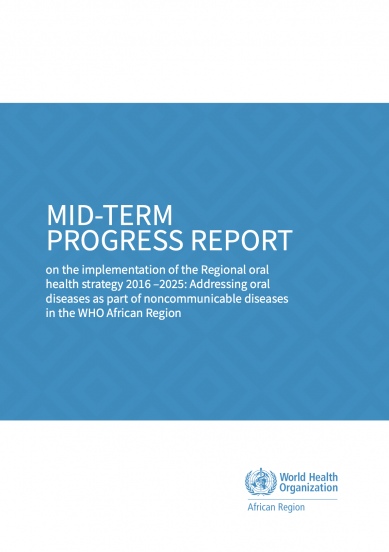
MID-TERM PROGRESS REPORT on the implementation of the Regional oral health strategy 2016 –2025: Addressing oral diseases as part of noncommunicable diseases in the WHO African Region
The World Health Organization (WHO) defines oral health as the state of the mouth, teeth and orofacial structures that enables individuals to perform essential functions, such as eating, breathing and speaking, and encompasses psychosocial dimensions, such as self-confidence, well-being and the ability to socialize and work without pain, discomfort and embarrassment. Oral health varies over the life course from early life to old age, is integral to general health and supports individuals in participating in society and achieving their potential.
Oral diseases are among the most common noncommunicable diseases (NCDs) with high social, economic, and health system impacts. They affectpeople throughout the life course, causing pain, disfigurement, social isolation, distress and even death. Oral diseases in the WHO African Region mainly include dental caries, periodontal disease, oral cancer, orofacial trauma, oral manifestations of HIV infection, birth defects, and noma.



